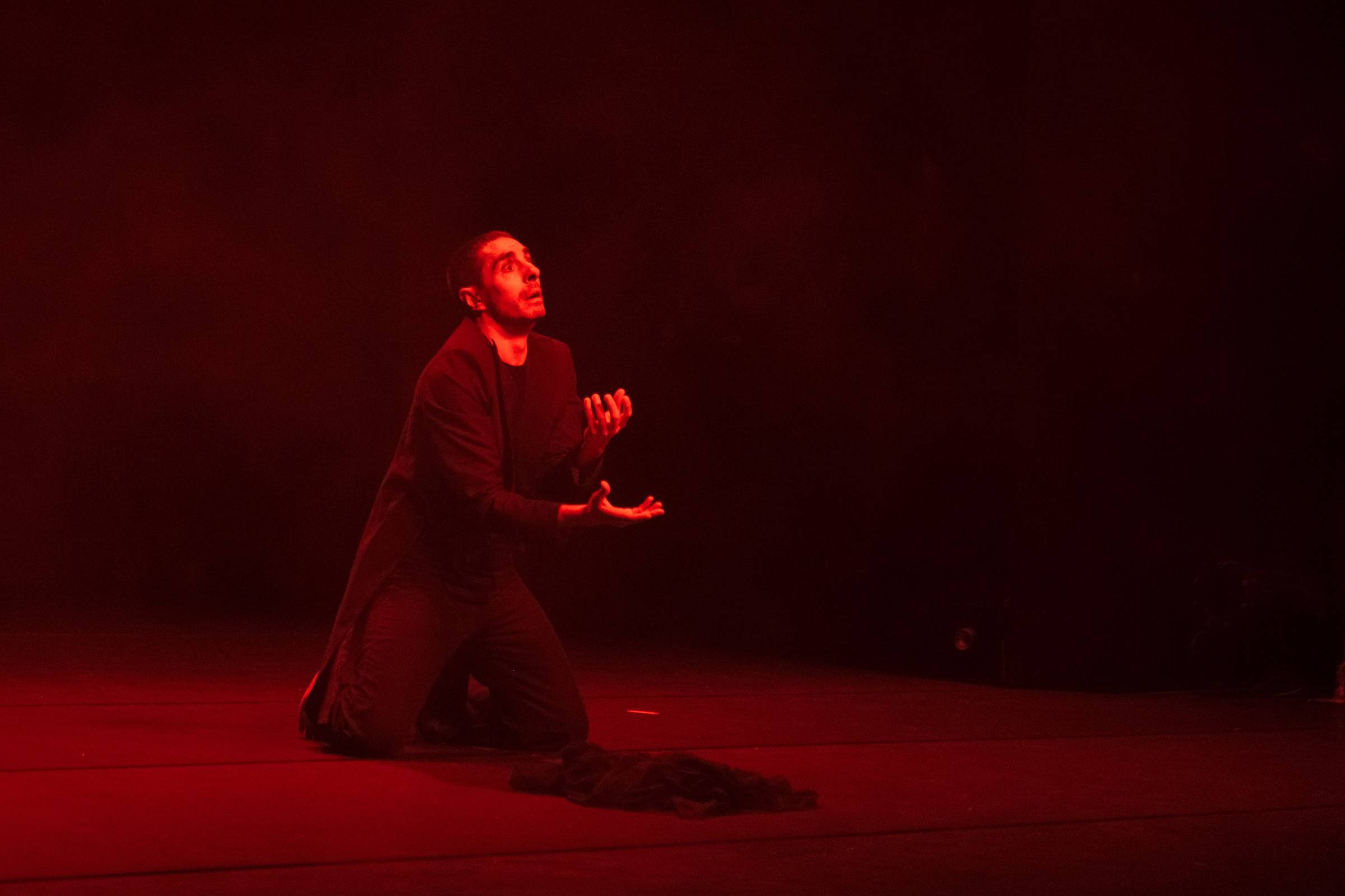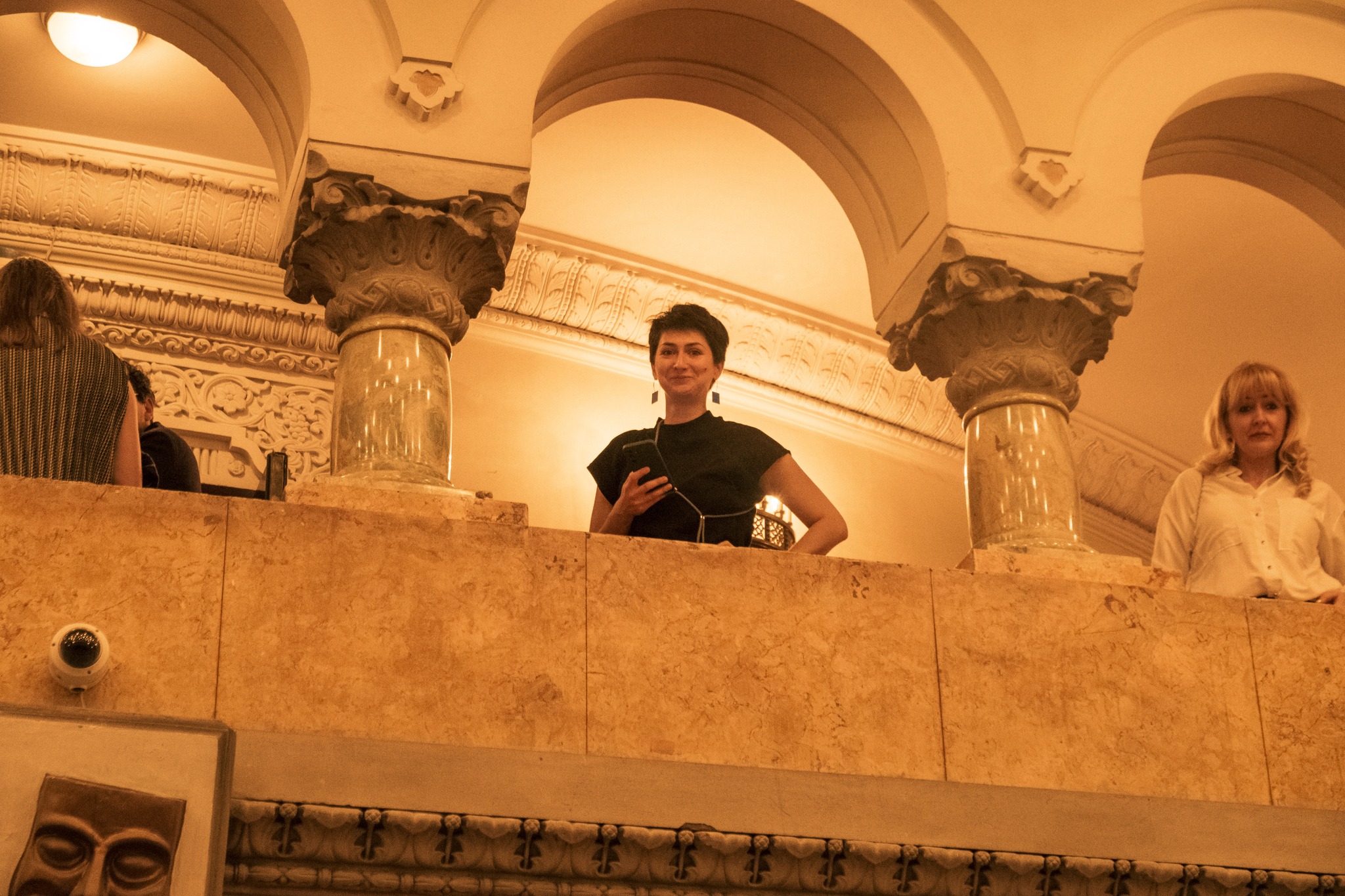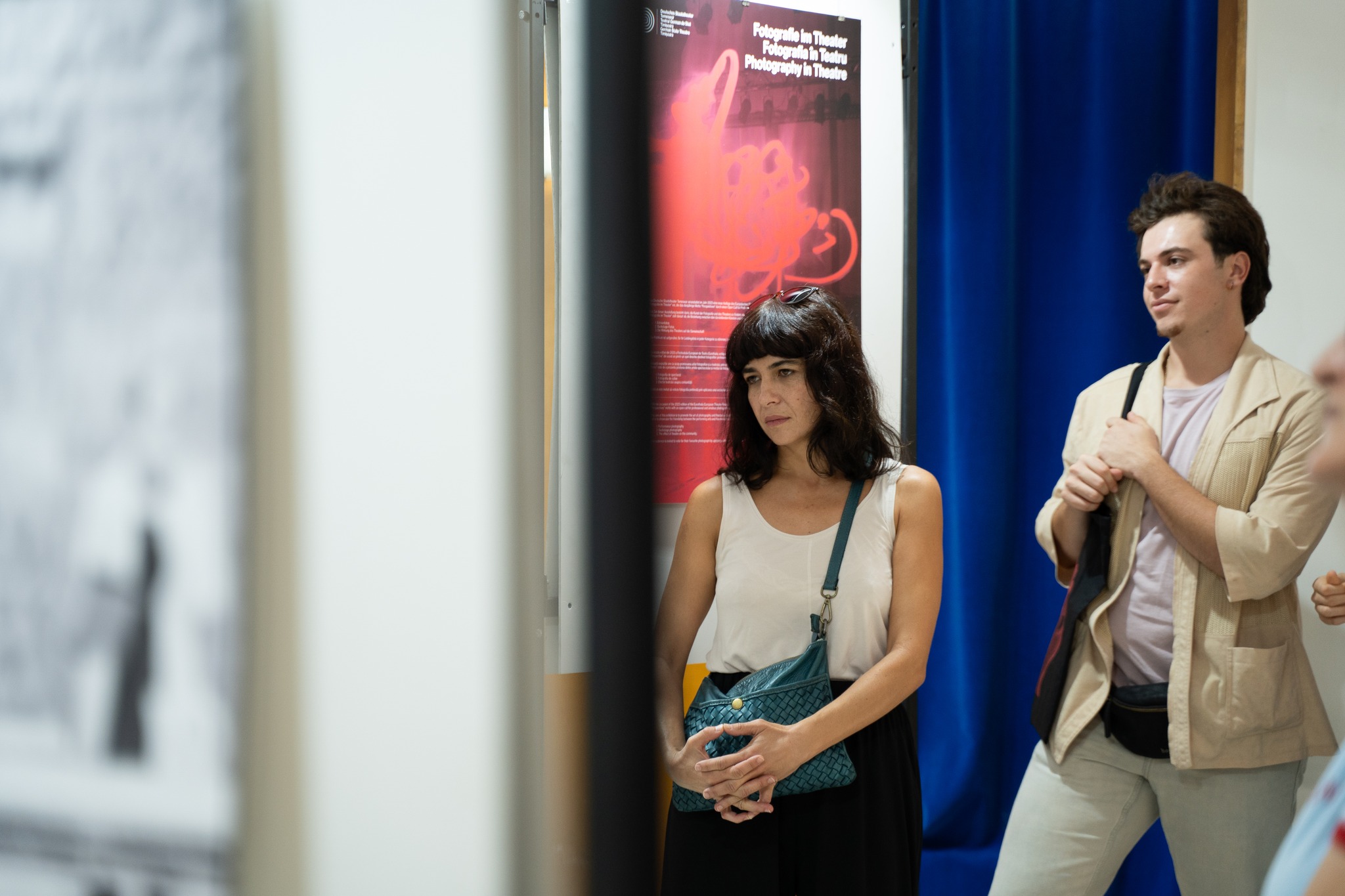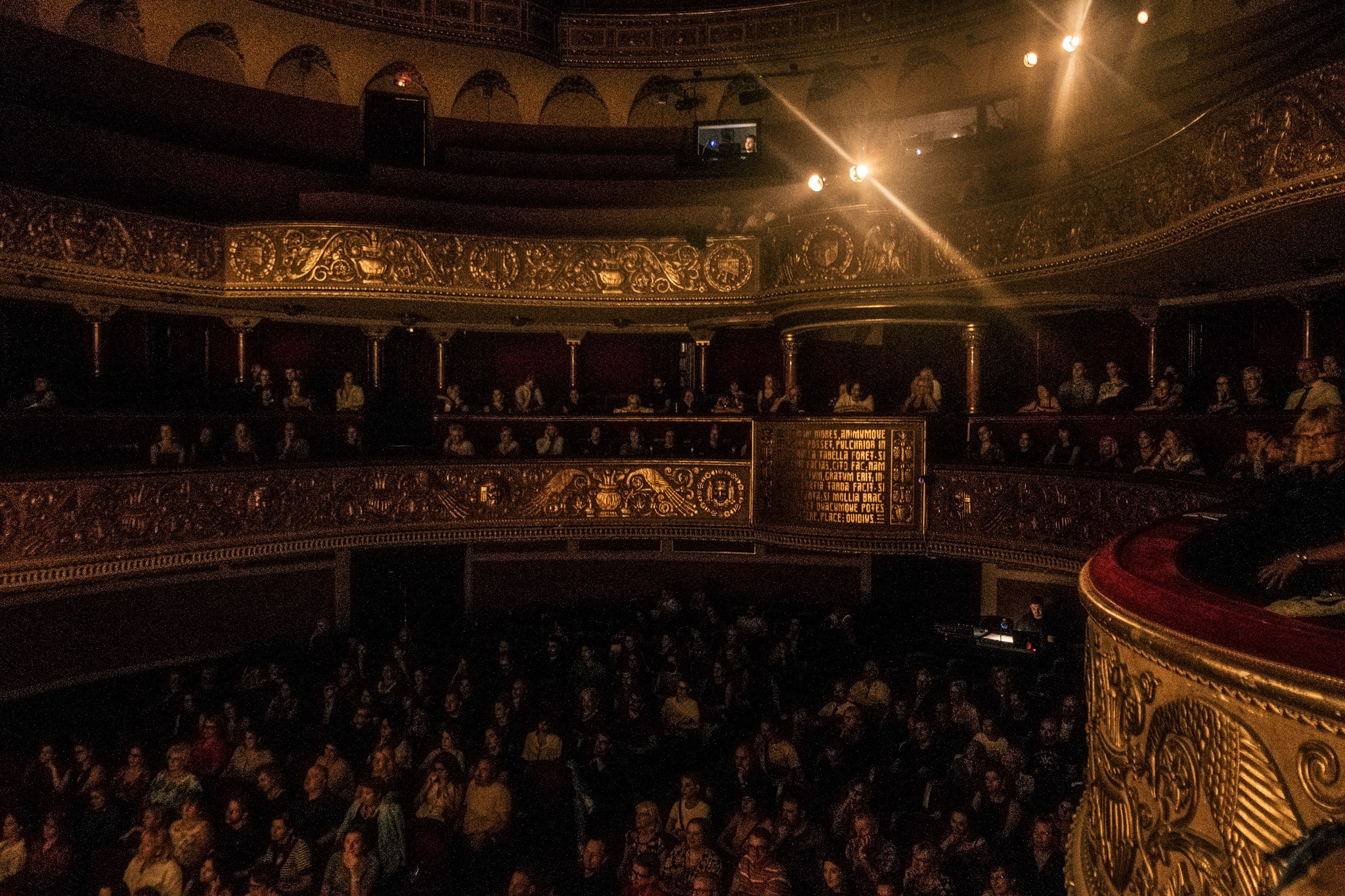
The Five Breaths of the Elegy, in Imaginary Translation
2 October 2023Chronicle by
Elena Jebelean
Sadness is universal,
you feel it just as well in literature, in dance, in fine arts, in music. This
dance-theatre show brought them all together. As both director, choreographer
and composer here, Filip Petkovski started from five poems by Macedonian poets.
Their musicality has different echoes, which for an hour, will lead you through
this world of real shadows, like the chords of an Orpheus descending to the
Underworld. Dakha Brakha, Duke Bojadziev, Boris Harfman, Hrvoje Crnić Boxer,
Piotr Ilyich Tchaikovsky, Ludwig van Beethoven, Filip Petkovski are the
composers who accompanied the grace, precision, force of suggestion of the
dancers-actors in this katabasis, dressed not only in the costumes of Antonija
Guginska Jordanoska and Maja Gjureska, but also in the whirlwind, in the
warlike storm, in drops of water falling with multiplied echo in the fountain,
reminding of the music of the icicles dripping from the eaves on the spring
mornings. But how much world tenderness can you enjoy in a severed life?
In the beginning of the
show, beyond a large semi-transparent white curtain, the dancing actors are
gathered around a table. One of them, at a typewriter, makes the well-known
gestures of writing, pushing the carriage to the left at each end of the row. Maybe
the poems are composed recently, maybe the poets are contemporaries. But on
stage everything is timeless, the same confrontations and pains as old as the
world. Rhythmic swaying movements, bending in front of fate, in wailing. If you
read the texts received at the entrance to the room, you understand that it
will be about leaving, war, death, love, waiting and longing. But you
understand it anyway, even if you do not read the poems at the beginning. It's
enough to discover them at home, to check to what extent you find in them what
you felt at the show, what you thought and what changed your mind.
The four silhouettes
around the table are difficult to recognize as real beings beyond the screen.
Almost at stage level, a projector amplifies their shadows on the canvas of the
screen, which is, symbolically, the white page, just then written on the
machine, filled with fictional transfigurations. So, as shadows, through the
gestures that already engage each fibre, they conquer the stage both
horizontally and vertically. The light-time augments their contours, as it
densifies and materializes the experiences you keep in your memory. Individual
memory, history, cultural memory. Not personalities, but generic people,
dressed in black, with similar clothes, with their heads covered in a black
veil, fixed to the neck, which opacifies their faces. They come out one after
another in front of us, reveal themselves and cover themselves again. They
dance repetitively, enough to build suggestion, but also unexpectedly varied,
enough to build individualization.
They work together, but
especially alone. They alternate dancing with talking, they build different
worlds on stage through their gestures. Each one assumes a breath, a poem. The
man, interpreted by Vasil Zafirchev – especially under the sign of struggle and
death. The women, played by Natalija Teodosieva, Simona Dimkovska, Sara
Cvetkovska – especially under the sign of love and loneliness of the one who
laments the departure of the lover and faces the aggression of the enemy. The
black veils are taken off in turn. One reveals the dancer's rich black hair,
which, at the top of a staircase, initially scatters delicately, petal by
petal, then brutally, with anger, the wedding bouquet of white roses. She will
be hanged, paradoxically, by an ascending rope. Another veil brings to light
the blonde, braided tails of a girl who still plays hopscotch, beyond the
trauma of successive rapes. A third one makes room for the wreath of flowers
and the bridal veil, which eventually end up in the suitcase for the departure
to a safer place, in the wide world. The man that returned from the front is
alive, but he barely can walk with the cane. From most of those who left, only
the letters come back home, falling on the scene like a snow of pages with
bloodied edges through the effect of light of such a strange ephemerality,
which flashes red. In the final scene, they form a snow with which the children
fight with joy, in which they roll without any worries. It seems as if the
thread of life would be reversed, from death, through trauma and the need for
normality, settlement, to the playfulness of non-consciousness.
North Macedonia, an
entire world, with a heart tattooed on the bare chest in front of the bullets.
A world in black, red and white. A world where blood becomes groundwater, so
that it is impossible to deny one's identity. The red blood of love is
intertwined with the black blood of death. A world whose vitality frightens,
whose love poems also conquer through fragments of breath:
“If
I die/ Do not close my eyes/ Keep up the love” – Radovan Pavlovski, A message
“We weave around each other/ A virtue out of weeds/ In a
storm of white, red and black handkerchiefs” – Radovan Pavlovski, Kiss in the grass
“Come closer than a flower rooted in heaven/ and by the
colour of your mouth I will guess/ in which fruit the summer will end.” – Petre
M. Andreevski, Denicija
---
“Theatre Chronicle @
Eurothalia” is a programme conceived by Daniela Șilindean together with the
team of the German State Theatre Timișoara, within the Eurothalia 2023 European
Theatre Festival, held between 20-30 September 2023, financed by the National
Cultural Program Timișoara - European Capital of Culture in 2023.


